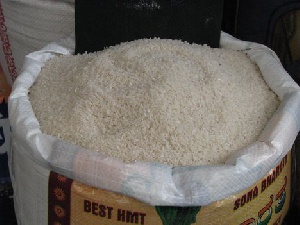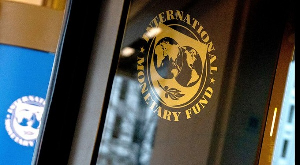President John Dramani Mahama has said 60% of rice consumed in Ghana is produced locally.
The president, who was a guest on TV3’s New Day on Monday 14 March 2016, also vowed that his government will not relent on its efforts to promote the patronage of Made-in-Ghana goods.
In an interview with Bridget Otoo, the president explained: “Currently we are producing 60% of the rice we consume, and that is part of the self-reliant campaign.”
Rice imports by the government are estimated to be between US$200 million and US$400 million every year.
Analysts indicate that this is one of the key contributors to the huge import bill, which has a strong effect on the strength of the Ghana cedi against major foreign currencies, especially the United States dollar.
A leaked US Embassy information by Wikileaks in August 2011 indicated that the largest commercial market for US rice was West Africa, and US producers maintain about a third of the Ghanaian rice market over the last several years.
Meanwhile, the president has also entreated citizens to shed the perception that foreign goods were better than what were produced locally, as the quality of Ghanaian goods meets global standards.
“Though we produce comparatively quality goods here, we have had the perception that foreign goods are always better than ours, and that is the perception [the] ‘Made-in- Ghana’ [campaign] seeks to change,” said Mr Mahama.
He indicated that government would be amending the Procurement Act to give Made-in-Ghana goods a priority.
“I think Made-in-Ghana goods should have some percentage of about 20%, so that if a Ghanaian product is even 20% more expensive than a foreign product, because it is manufactured locally and produces jobs in Ghana, we should go for the Ghanaian product,” he stated.
He argued that Ghanaians had become more conscious of the need to switch from patronage of foreign goods to local ones, while Ghanaian producers were getting more opportunities to market their products.
Mr Mahama cited the example of the Kumasi Shoe Factory, which makes shoes for security personnel and schoolchildren, whose operations, he said, had led to a huge reduction in the import bill, as previously the state had to buy footwear from China.
According to the president, the resuscitation of the Komenda Sugar Factory to produce half of the sugar consumed in Ghana, has led to a reduction of the sugar import bill from US$300m per year to US$150m.
He also indicated that other firms like the Savanna Cement Factory now obtain raw materials locally to produce a large quantity of cement in Ghana.
Business News of Monday, 14 March 2016
Source: classfmonline.com













